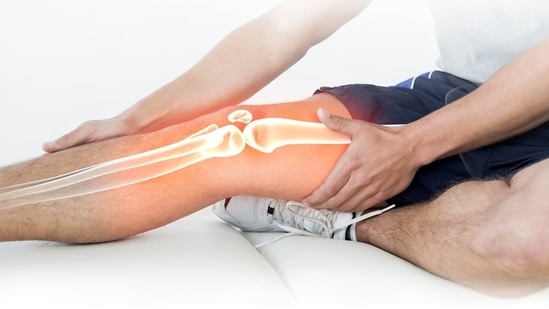
Osteoarthritis is a chronic condition that affects millions of people worldwide, causing pain, stiffness, and swelling in the joints. One of the most common areas affected by osteoarthritis is the knee, leading to discomfort and limited mobility. Swelling in the knee joint is a common symptom of osteoarthritis and can be both painful and inconvenient. Fortunately, there are several effective treatments that can help reduce knee swelling and improve overall joint health.
One of the most effective ways to reduce swelling in the knee caused by osteoarthritis is through medication. Nonsteroidal anti-inflammatory drugs (NSAIDs) such as ibuprofen and naproxen can help reduce inflammation and relieve pain in the affected joint. These medications can be purchased over-the-counter or prescribed by a doctor for more severe cases. Corticosteroid injections are another option for treating knee swelling in osteoarthritis. These injections can help reduce inflammation and provide temporary relief from pain and swelling in the knee joint.
Physical therapy is another important component of treating knee swelling associated with osteoarthritis. A physical therapist can work with patients to develop a personalized exercise program that can help improve joint function and reduce swelling in the knee. Strengthening exercises, flexibility exercises, and low-impact activities such as swimming or biking can all help improve the health of the knee joint and reduce swelling. Additionally, physical therapy can help improve overall mobility and quality of life for individuals with osteoarthritis.
Weight management is also crucial for reducing knee swelling in osteoarthritis. Excess weight puts added stress on the knee joint, leading to increased inflammation and swelling. By maintaining a healthy weight through diet and exercise, individuals can reduce the strain on their knees and improve joint health. Losing even a small amount of weight can have a significant impact on reducing knee swelling and improving overall joint function in individuals with osteoarthritis.
In addition to medication, physical therapy, and weight management, there are several other treatments that can help reduce knee swelling in osteoarthritis. Hot and cold therapy can help reduce inflammation and provide relief from pain and swelling in the knee joint. Applying a cold pack to the affected area can help numb the pain and reduce swelling, while applying a warm compress can increase blood flow and promote healing.
Bracing is another option for treating knee swelling in osteoarthritis. A knee brace can help support the joint, reduce strain, and provide stability, which can help reduce swelling and improve mobility. There are several different types of knee braces available, depending on the severity of the osteoarthritis and the individual's needs. A doctor or physical therapist can help determine the best type of brace for each individual and provide guidance on how to use it effectively.
Surgery is typically considered a last resort for treating knee swelling caused by osteoarthritis, but in some cases, it may be necessary. Total knee replacement surgery is a common procedure for individuals with severe osteoarthritis that has not responded to other treatments. During this surgery, the damaged knee joint is replaced with an artificial joint, which can help reduce swelling, improve mobility, and relieve pain. While surgery is a more invasive treatment option, it can provide significant relief for individuals with advanced osteoarthritis.
In conclusion, there are several effective treatments available for reducing knee swelling caused by osteoarthritis. Medication, physical therapy, weight management, hot and cold therapy, bracing, and surgery are all options that can help improve joint health, reduce inflammation, and provide relief from pain and swelling in the knee joint. By working with a healthcare provider to develop a personalized treatment plan, individuals with osteoarthritis can say goodbye to swollen knees and enjoy improved mobility and quality of life.
